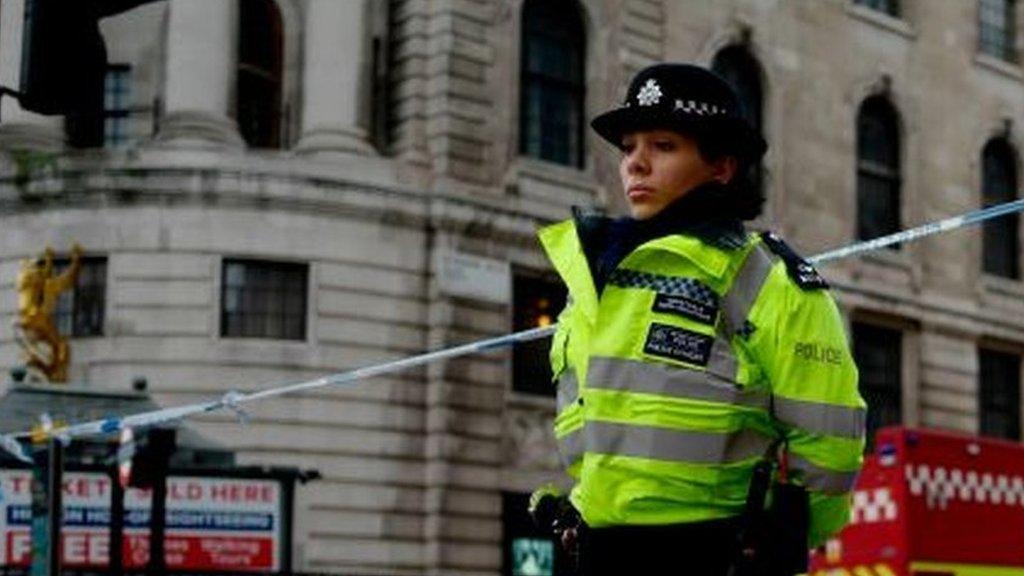Greater Manchester Police: My time on the beat
- Published
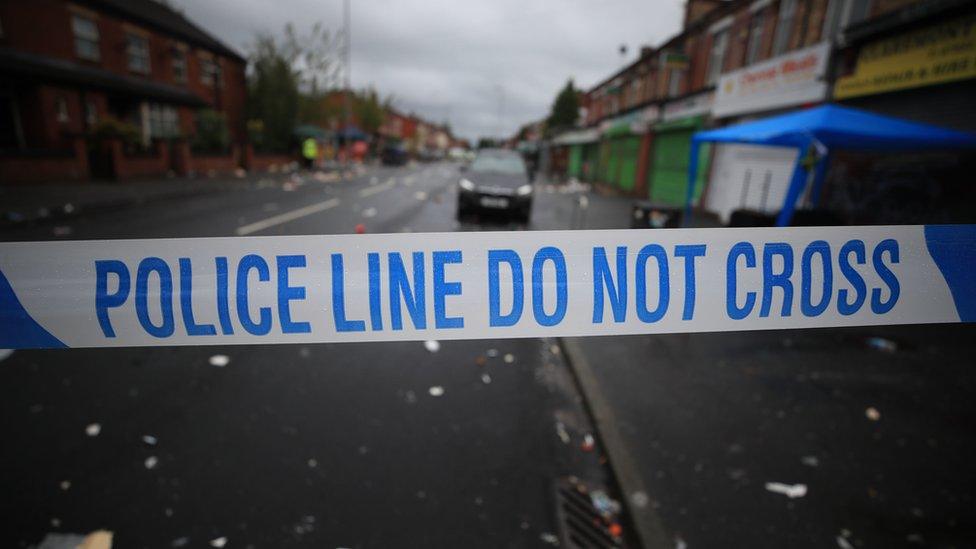
Crime scene tape at the scene of a shooting in Manchester
For the past three months I've been embedded with Greater Manchester Police, witnessing life - and very nearly death - on the frontline with one of Britain's biggest police forces.
When I went into this project for BBC Radio Manchester, I was confident of what to expect. But I was wrong.
I mean this in the most respectful way, but being a police officer is not a normal way of earning a living.
I've seen them dealing with people at their most vulnerable, and most dangerous. I've been on high-speed chases and police raids. I've spoken to the counter-terrorism officers who investigated threats against Prince George.
Over these months, I've seen police officers working under immense pressure with no margin for error, in situations that most of us will never be exposed to.
Those officers who do this are not normal. They are brave and sometimes they're heroic.
Crisis
One of the first jobs I attended was a "blue light" emergency response to a hospital in Bolton.
A man had taken a knife and was attempting to cut his own face off because he said the voices in his head had told him to do it.
Horrified, I stood and watched the officers assess the situation calmly then quickly take control.
Over 20 minutes, they talked the man down from crisis and had him ready to receive medical care.
I'd never seen anything like it.
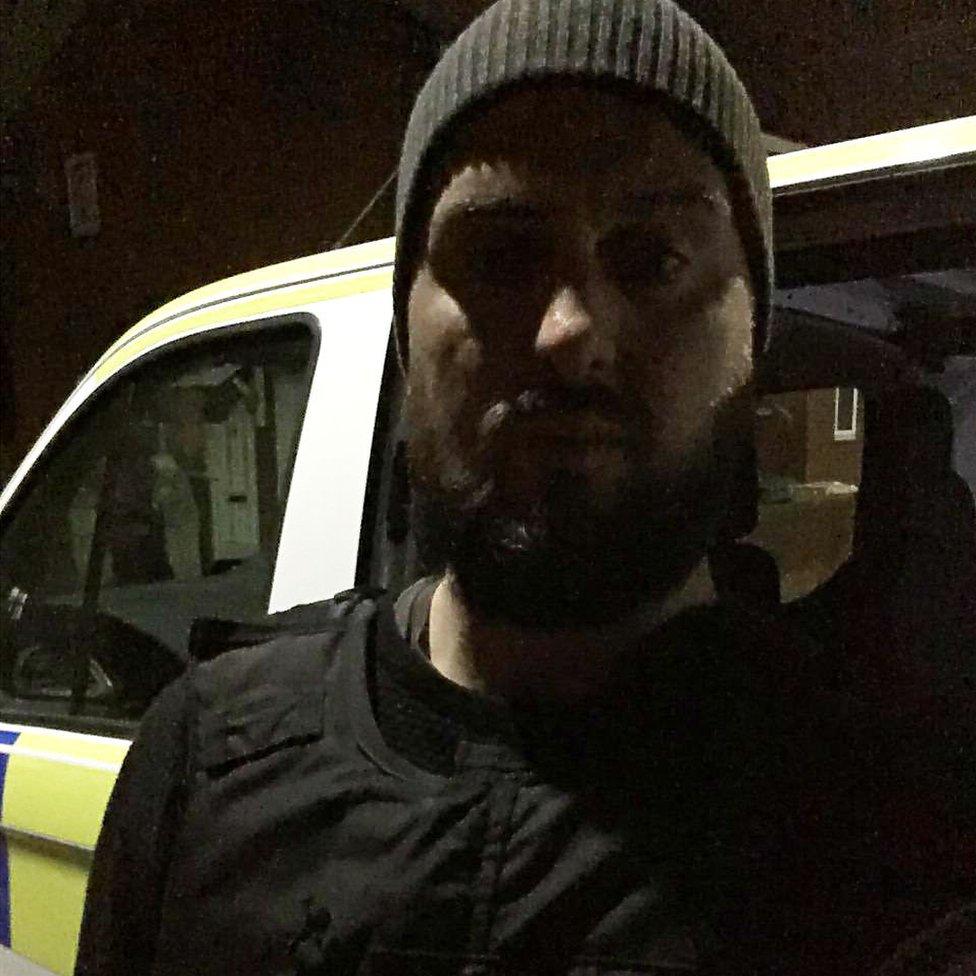
Andy Bell joins GMP officers on the beat in Bolton
There was no time to process what had happened because the next priority call literally ran straight past us.
It was a woman who'd swallowed a load of pills and was refusing treatment.
The officers gave chase and again had to delicately reason with her to come back and seek help.
In the first hour after joining their shift, I'd seen the police prevent two human beings from dying in front of me.
'Proud'
During the quieter moments that followed, as we patrolled Bolton in their van, the officers told me what I'd just seen was not unusual.
More and more of their time is being taken up responding to people having mental health crises, they said.
Those cases, as well as domestic violence and alcohol-related issues, are what usually confront them while out on the beat.
During the early hours of the morning I was able to head home to bed. The police officers I'd been with weren't so fortunate - they had to return to the station to start doing their paperwork.
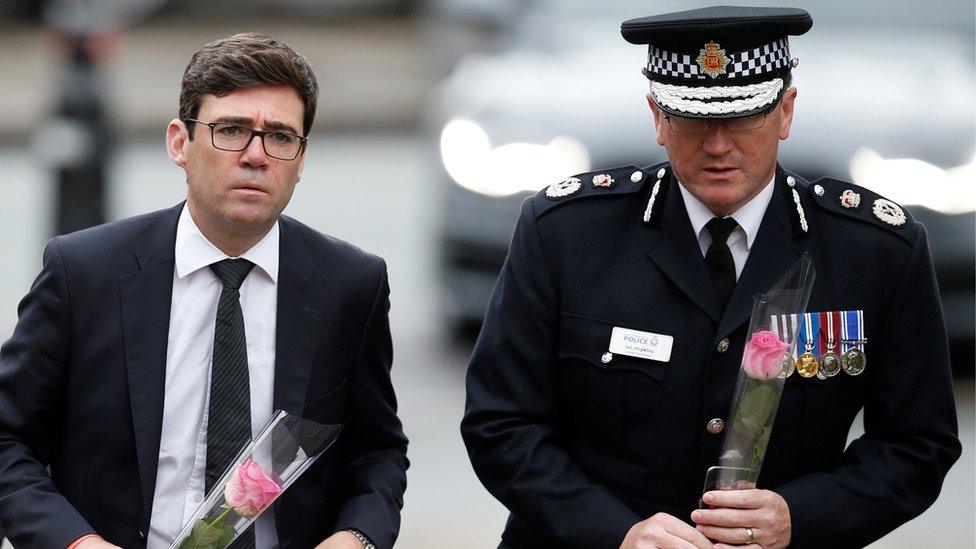
Chief Constable Ian Hopkins with Greater Manchester mayor Andy Burnham at the funeral for one of the victims of the Manchester Arena attack
Despite all of this, every officer I met said they loved their job and were proud to be doing it.
Later, I spoke to their boss, Chief Constable Ian Hopkins.
He was candid about how he sees modern-day policing.
Since 2010, he said his force had lost about a quarter of its officers, down to about 6,200, due to central government cuts.
A recent increase in council taxes does mean they can recruit an extra 320 officers, however.
But the front line is still very stretched, he said, and the pressures - from mental health crises to organised crime and terrorism - are increasing.
As a result, Mr Hopkins said about 43% of crimes reported to his force were now being "screened out", meaning they are not fully investigated.
The police have to prioritise. I don't think anybody likes it - one officer I spoke to called it a "necessary evil".
Debates about funding are for another forum, and certainly not for me to say.
But seeing what officers deal with on a daily basis left me under no doubt whatsoever - that it's a very tough job and one I'm grateful I don't have to do myself.
You can hear more about this story on BBC Radio Manchester between 23 and 30 April as well as on BBC Sounds.
- Published20 March 2019
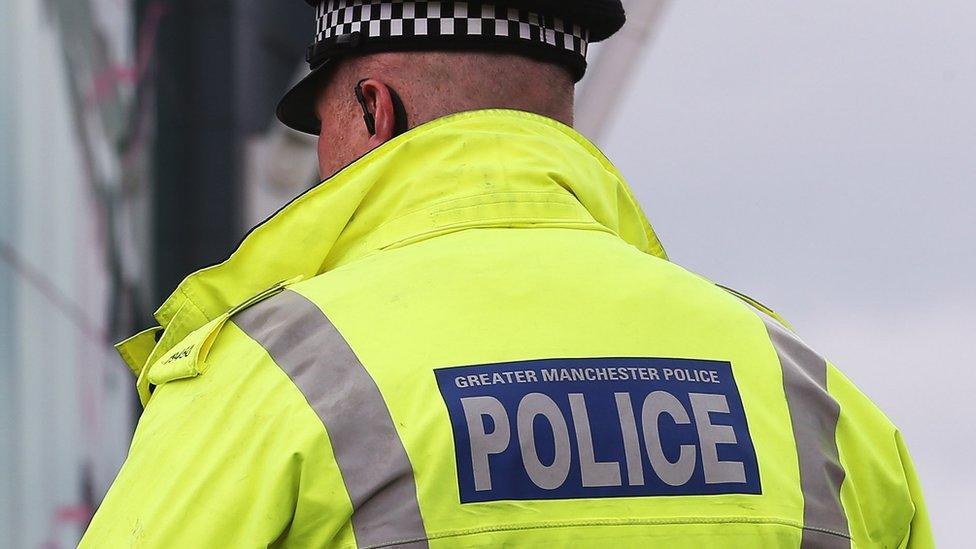
- Published1 February 2019
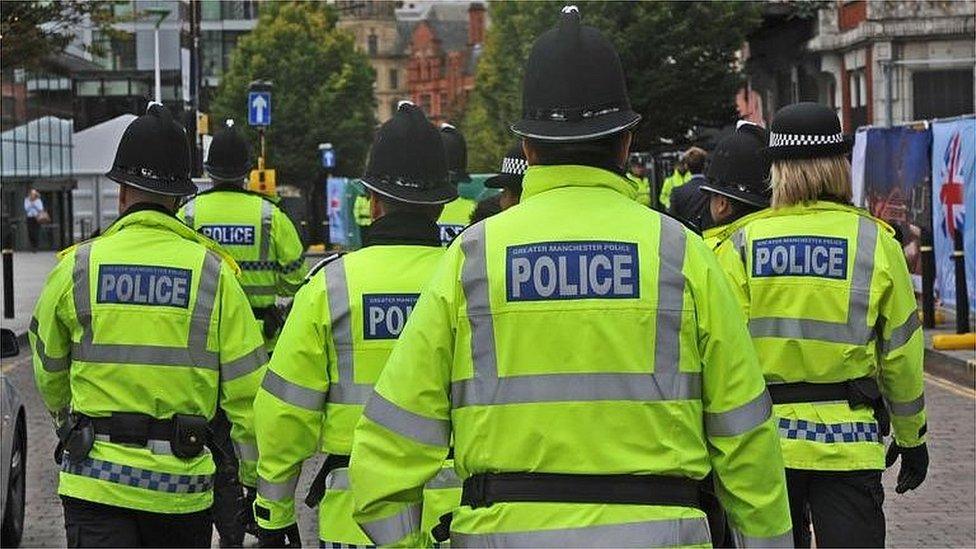
- Published24 January 2019
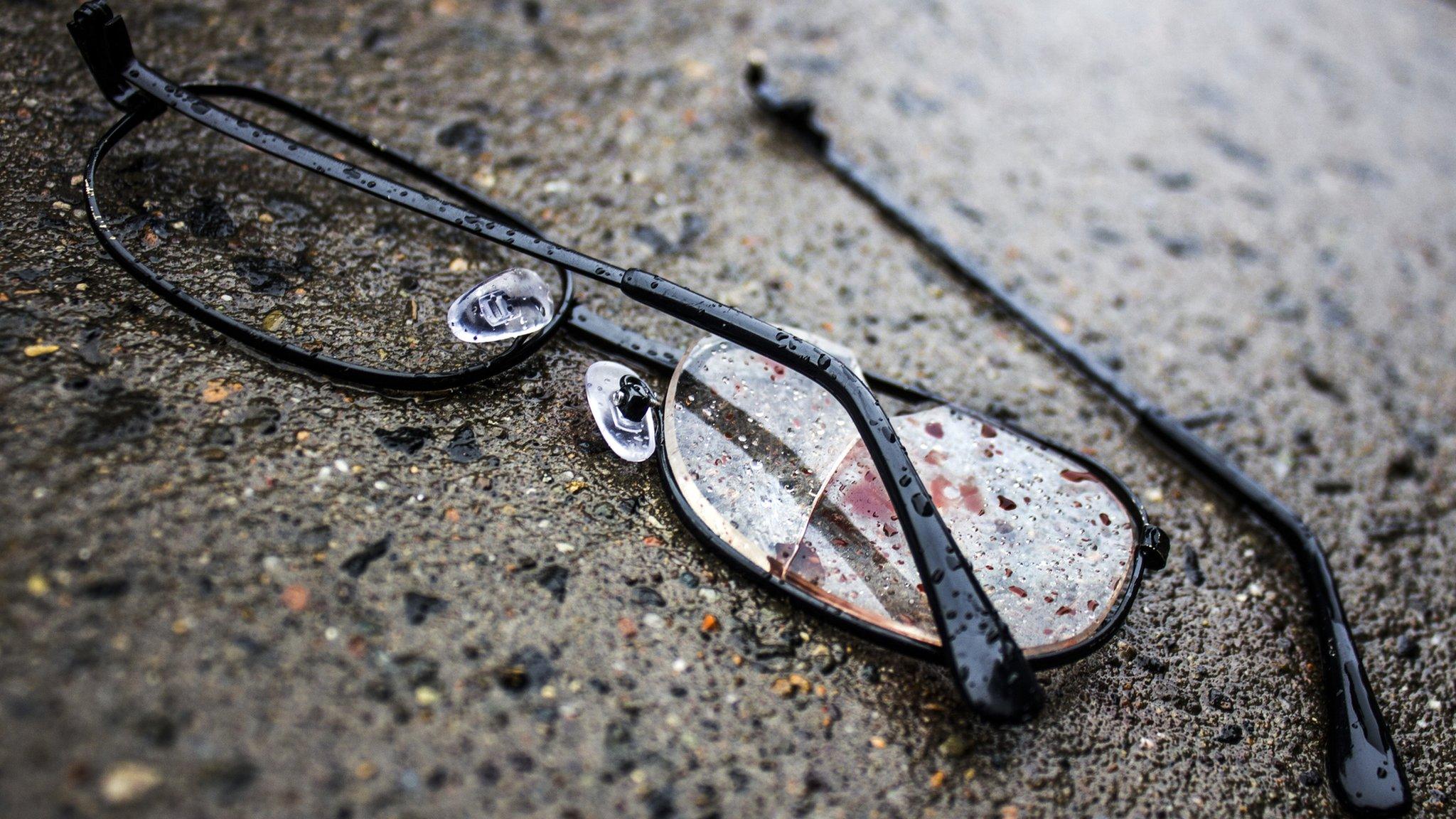
- Published24 January 2019
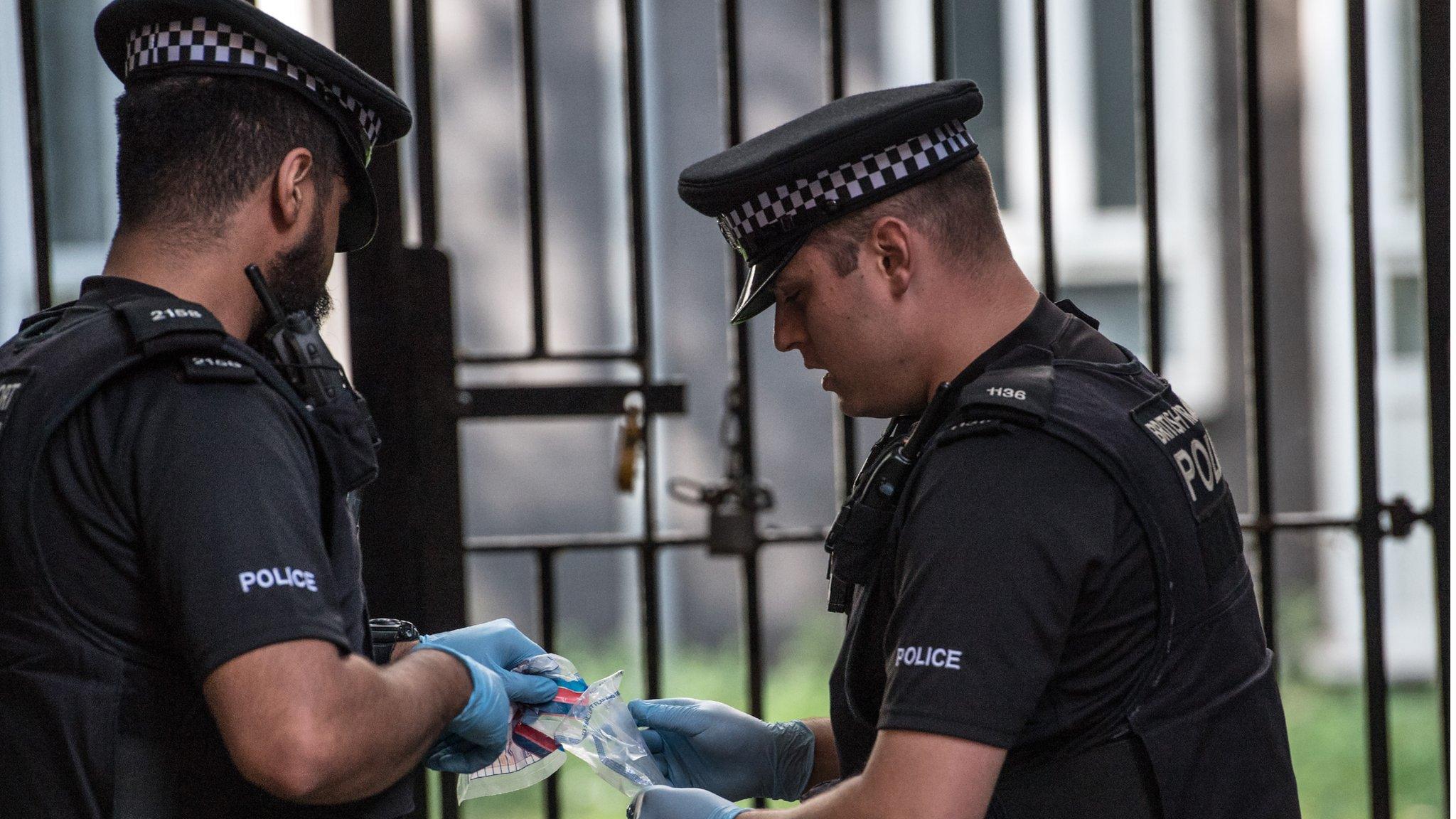
- Published13 December 2018
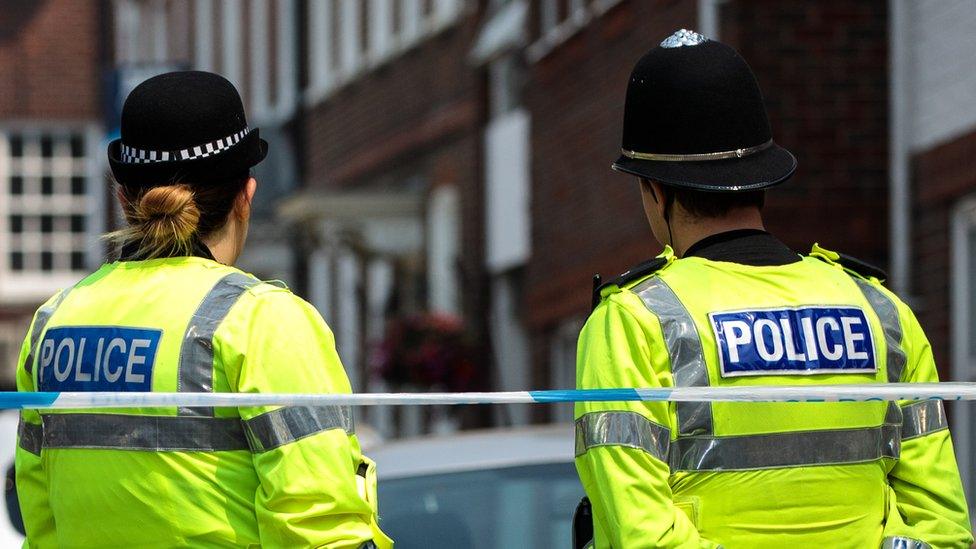
- Published11 April 2018
